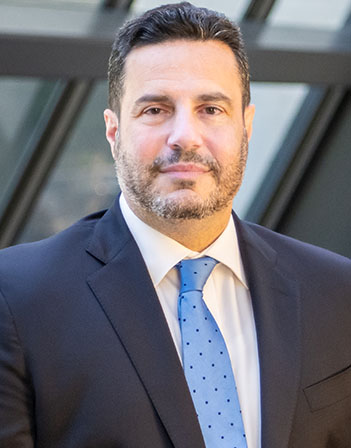
Article
Newark Police Issue Summonses To Manufacturers For Violating Governor Murphy's Executive Orders 104, 107, And 108
I. Overview of Executive Orders:
A. Relevant Executive Orders:
- Executive Order 104 closed gyms, movie theaters and casinos and left ‘non-essential’ retail businesses closed 5 a.m. to 8 p.m. Executive Order 104 Paragraph one (1) specifically exempts “normal operations [of] … medical facilities, office environments, factories, assemblages for the purpose of industrial or manufacturing work, construction sites, mass transit, or the purchase of groceries…” from the requirement to limit gatherings to “50 persons or fewer”.
- Executive Order 107 amended EO 104, closing non-essential retail business and cites that the White House recommends limiting groups to ten (10) people or fewer. Paragraph 11 references manufacturing and construction under the category of “a business… has employees that cannot perform their functions via telework or work-from-home arrangements, the business or non-profit should make best efforts to reduce staff on site to the minimal number necessary to ensure that essential operations can continue”. This paragraph cites examples of essential jobs including, but not limited to, “first responders, construction workers, warehouse workers, lab researchers, certain administrative staff…”.
- Executive Order 108 invalidates any municipal or county restriction that conflicts with EO 107 cited above.
- Executive Order 109 and 113 directs businesses (“non-hospital heath care facility”) “in possession of PPE, ventilators, respirators, or anesthesia machines… not required for the provision of critical health care services [to] undertake an inventory of such supplies and send that information to the state”. The state established the right to commandeer said PPE and related equipment for just compensation “due to a critical shortage of medical resources in the state”. While the inventory must be provided, it is anticipated this power would only be invoked if the risk from COVID-19 makes such action necessary to “protect and promote the public health, safety or welfare of the state, including by reducing the loss of life”. Inventory lists should be sent to: https://covid19.nj.gov/ppereport.
B. NJMEP Acts to Keep Manufacturers Working
On behalf of manufacturing and logistic companies, Alan Zakin, representing NJMEP, contacted the Attorney General and Governor’s office. They were asked to send a communication to law enforcement agencies throughout New Jersey orderingthem to cease and desist these enforcement actions.
II. Newark Police Issue Summons to Newark-Based Manufacturers: Despite the EOs, the Newark Police Department has issued summonses to Newark-based manufacturers and their employees for having too many employees on the floor and at the work place. During one visit, the police told the manufacturer the company could not have over 50 employees on the warehouse floor. At another manufacturer, the manufacturer was told it could not have over 10 employees working at one time. Both times the Newark Police incorrectly interpreted and applied Executive Orders 104, 107, and 108. Other companies and their employees have been fined. These summonses violate the EOs because Governor Murphy has deemed manufacturing companies as essential to the public and supply chain, and stated that they can remain open during the COVID-19 pandemic provided manufacturers reduce staff to the minimum staff required to perform essential functions. Porzio has been working with the manufacturers to address the issues they are facing.
III. Takeaways:
- Accept the summonses–do not fight with the police. Even if their interpretation of the EOs is incorrect, the summonses are effective and have the force of law until a court rules otherwise. If the police shut down your operations, you can sue to overturn the decisions.
- Act—call NJMEP, call Porzio, call Alan Zakin, and call your local elected officials. You need to register the summons with someone to fight on your behalf.
- Document—save all documents confirming the number of employees on site when the summonses was issued, and photograph locations of hand sanitizers, social distancing, and other practices you implement. These documents can be used later when you challenge the summons and fine.
- Follow—CDC and state health guidelines for safe working environments, and the Executive Orders—minimum staff only. And practice CDC healthy working practices—social distancing, handwashing, hand sanitizers, etc.
- Understand employee benefit laws—new federal laws have been passed and recent state laws on family leave and paid sick apply to the COVID-19 pandemic. Know what your obligations and your employees’ rights are before you act.
- Be Prepared—no one knows what will happen next. Have a plan in place if you have to curtail business operations, furlough employees, cut back on shifts, or close. Prepare now so you can address the next Executive Order.
- Reach Out—get help! Please contact NJMEP, Porzio, or Alan Zakin Associates. They have the resources to guide you through these times.


